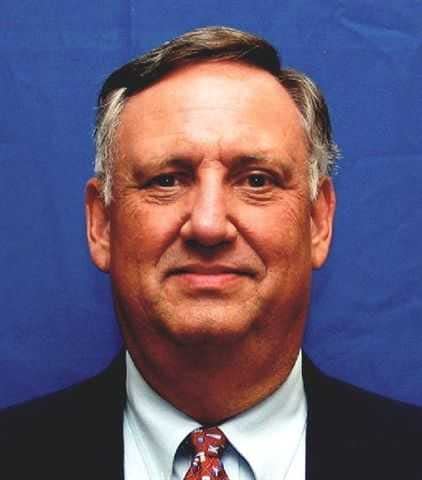Squabble between Newsom, unions spotlights California's insolvent EDD
- Oops!Something went wrong.Please try again later.
Gov. Gavin Newsom describes himself as a “progressive” and has said his vision for California includes a highly unionized workforce.
However, his relationship with the state’s public and private employee unions has been a rocky one. Sometimes he and union leaders sing from the same hymnal, but they occasionally are at odds, particularly when labor is feuding with corporate interests that Newsom is also cultivating.
That syndrome was displayed last weekend when he vetoed two of union leaders’ high priority measures, including one that would have given unemployment benefits to striking workers, but then chose a former union leader, Laphonza Butler, to fill a U.S. Senate seat that became vacant when Dianne Feinstein died.
The juxtaposition drew a sharp retort from Lorena Gonzalez Fletcher, who resigned from the Legislature last year to become head of the California Labor Federation.
“Don’t get distracted,” Gonzalez Fletcher posted on X, formerly known as Twitter. “Gov. Newsom has vetoed three important labor bills, including labor’s collective highest priority bill — SB 799. We must continue to organize & fight & demand respect for all workers, especially those who are striking to fix an economy that has failed us.”
Newsom said that Senate Bill 799, the unemployment insurance bill, would have worsened the Unemployment Insurance Fund’s multibillion-dollar deficit, which developed when the state borrowed about $20 billion from the federal government to keep unemployment insurance benefits flowing during the first months of the COVID-19 pandemic.
“Now is not the time to increase costs or incur this sizable debt.” Newsom said in his veto message.
Gonzalez Fletcher and other union leaders had pushed Newsom to approve SB 799 and the two other union-backed bills he has vetoed, one banning operation of trucks without human operators and another granting full employment protections to household workers. But he was also under pressure from business groups to reject them.
“We applaud Gov. Newsom for vetoing this misguided legislation,” Jim Wunderman, CEO of the Bay Area Council, said in a statement, adding, “We can’t keep saddling business with more and more costs and expect the state’s economy to flourish.”
Newsom’s veto of SB 799 does not end the battle. Gonzalez Fletcher pledged to put the bill on Newsom’s desk again, saying, “We will keep fighting until striking workers get the benefits they’ve earned.”
The clash also hardens a decades-long stalemate over the chaotic finances of the unemployment insurance system.
The state borrowed money from the federal government during the Great Recession because its Unemployment Insurance Fund, or UIF, had virtually no reserves. When the state didn’t repay the loan, the feds hiked payroll taxes on employers and it was finally retired in 2018.
Two years later, when Newsom ordered businesses to shut down during the pandemic, unemployment soared and once again the state borrowed about $20 billion to pay benefits, most of which is still owed.
California’s unemployment insurance program is running an operational deficit even during this period of relatively high employment and is the least solvent of any state unemployment fund. The UIF has been unable to build reserves because of a chronic political stalemate between unions and employers over benefits and the payroll taxes to pay for them.
It began when former Gov. Gray Davis and the Legislature drained what had been a healthy UIF reserve to sharply increase benefits, leaving it incapable of handling an economic downturn.
If another recession hit the state, it would almost certainly be forced to borrow even more money to maintain benefits, even though it still has heavy debt from the previous recession.
This political mismanagement of a system that protects millions of Californians from economic ruin is — or should be — a huge embarrassment.

CalMatters is a public interest journalism venture committed to explaining how California's state Capitol works and why it matters.
This article originally appeared on Ventura County Star: Squabble between Newsom, unions spotlights California's insolvent EDD
